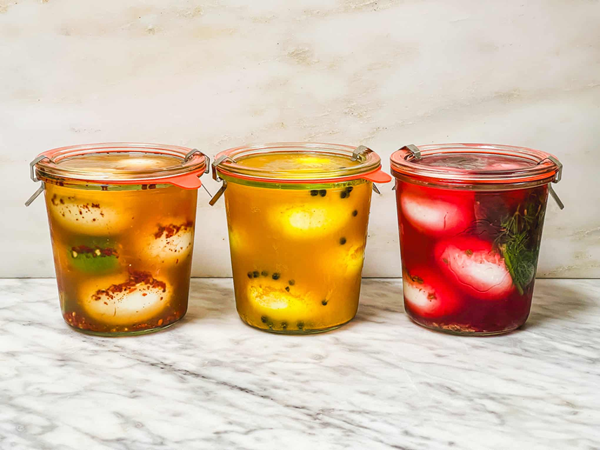Don’t try this at home
March 21, 2025 by DarcieSince the advent of the internet, the amount of useful information available at one’s fingertips has grown astronomically. It’s easy to forget how much more effort you had to expend to find out the answers to questions both trivial and weighty. For example, I can easily find a YouTube video for nearly any home improvement project I might want to tackle, from installing wallpaper to fixing a broken appliance. However, in addition to all of the great advice that exists, plenty of misinformation is circulating.

This is especially true in the realm of food and cooking. Countless videos offer dubious nutritional advice and make misleading claims like saying it will only take 25 minutes to caramelize onions or that searing meat seals in the juices. Most of the time this misinformation is only mildly annoying, but when it comes to food safety, inaccurate advice could make you sick or, in the worst case scenario, kill you. Today I read about a preservation technique for eggs called water glassing on the Food and Wine website. Water glassing involves mixing sodium silicate with water, then putting unwashed eggs into the mixture. The “liquid glass” keeps the eggs from spoiling, and the technique can preserve the eggs for months.
There is one problem with this article, and it isn’t that it overlooked the potential risks, as those were addressed. The issue is that it mistakenly claims that sodium silicate is also known as pickling lime. That is not true, as pickling lime is calcium hydroxide which is much different than sodium silicate. Since calcium hydroxide is used in food preservation and processing (it is used in modern-day nixtamalization and to give extra crunch to pickles), this misidentification could be confusing to someone looking to try out water glassing. One would hope that this F&W article would not be the only source someone consults before attempting this technique and that further reading would clear up any confusion, but avoiding the error in the first place would be better.
Mistakes like this show how important it is to find accurate, trusted sources for food preservation techniques. I have seen firsthand the problems that can arise with using outdated canning practices that often pop up in blogs. A relative of mine attempted to can tomato sauce using the oven method. One of the jars exploded, causing other jars to break and blowing out the glass in the oven door. This unleashed a torrent of steaming tomato sauce that splattered all over the walls, floor, and even the ceiling. Thankfully no one was in the path of the flying debris so it only resulted in a terrible mess instead of an injury. The oven was badly damaged and had to be replaced, so it was an expensive lesson in the importance of using carefully researched, proven techniques. Going back to the egg preservation issue, I would opt to freeze the whites, salt-cure the yolks, and/or make pickled eggs like the ones shown above before I would try water glassing.
Categories
- All Posts (7075)
- Antipasto (2205)
- Author Articles (250)
- Book News (944)
- Cookbook Giveaways (996)
- Cookbook Lovers (262)
- Cooking Tips (116)
- Culinary News (299)
- Food Biz People (558)
- Food Online (800)
- Holidays & Celebrations (277)
- New Cookbooks (154)
- Recipes (1520)
- Shelf Life With Susie (231)
- What's New on EYB (134)
Archives
Latest Comments
- JimCampbell on Food news antipasto
- Indio32 on Four outstanding independently published cookbooks worth your attention
- nvernon on Four outstanding independently published cookbooks worth your attention
- fayegibson on Four outstanding independently published cookbooks worth your attention
- Pizzacat13 on Balli Balli – Cookbook Giveaway and Quick Bites
- Laura1 on For the Love of Lemons by Letitia Clark – Giveaway
- fms95032 on For the Love of Lemons by Letitia Clark – Giveaway
- fms95032 on 20 Amici – 40 Ricette Cookbook Giveaway
- fms95032 on French at Heart – Cookbook Giveaway
- Shelmar on Tea innovations